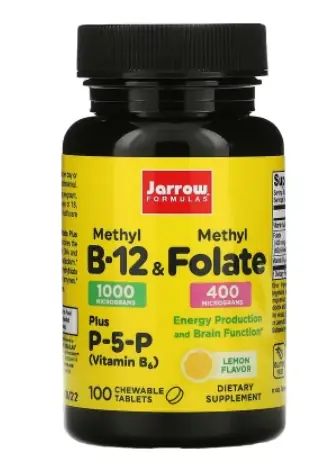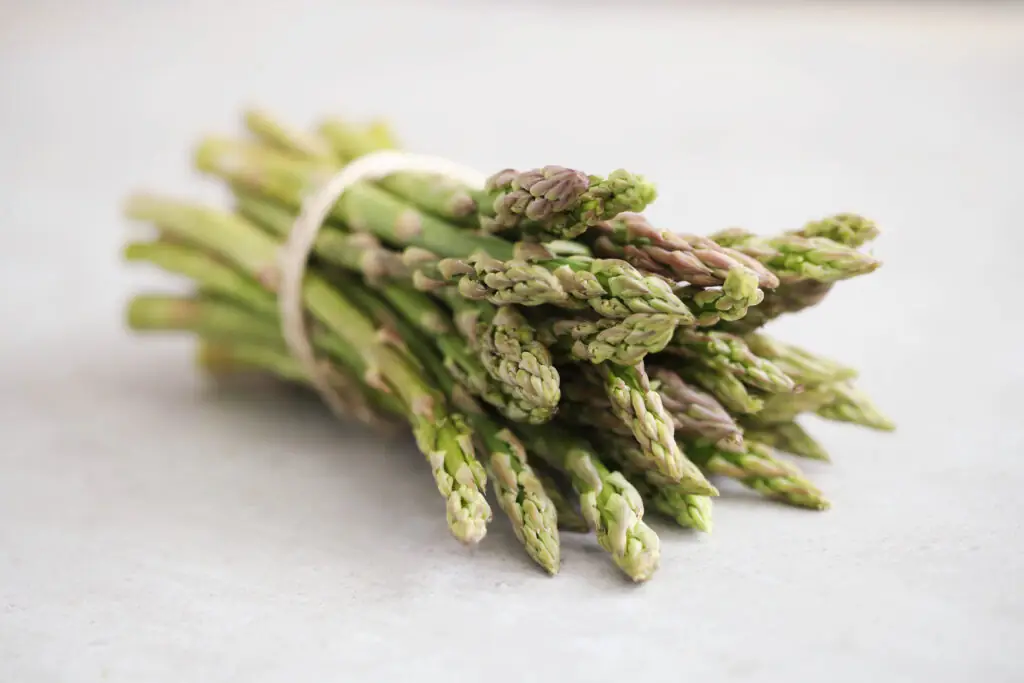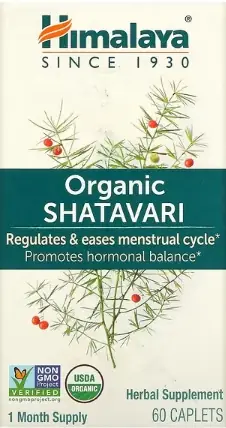What Are the Health Benefits of Asparagus: A Review

Delicious and tender, asparagus is truly the food of the gods. What are the health benefits of asparagus? Why is it often recommended for pregnant women? Is asparagus racemosus (or Shatavari) good for your body? Read on, and you will find the answers to all these and numerous other questions.
Why Is Asparagus Good for You
Low in calories and sugars and rich in various vitamins and minerals, this vegetable is definitely worth including in your diet.
Nutritious and Noncaloric
There are only 20 calories per 100 grams (½ cup) of asparagus: while making you feel full, this plant does not overload your body with unnecessary energy. What’s more, this vegetable contains sizable quantities of proteins (the body’s most important building materials) and dietary fiber (promotes regularity and helps your gut health). This plant is also low in sugars and contains almost no fat.
Asparagus really shines when it comes to vitamins and minerals. It is extremely rich in vitamin K (required for normal blood clotting and strong bones) and contains measurable quantities of vitamins B1, B2, B3, B5, B6, and B9 (folate), all of which influence the energy production within cells and are crucial for the nervous system. This vegetable also contains sizable amounts of vitamin C (boosts the immune system), E (has a pronounced antioxidant action), zinc (promotes skin health), phosphorus (present in bones and teeth), manganese (needed for numerous enzymes), and magnesium (essential for the nervous system).

This plant is also a good source of dietary iron. Iron is directly responsible for how efficiently oxygen is transported by red blood cells; a lack of iron in the diet can lead to the development of anemia.
Contains Antioxidants
Antioxidants protect cells from the harmful action of free radicals: they are believed to halt the aging process, reduce chronic inflammation and lower the risks of cancer development. In addition to vitamin antioxidants such as vitamins C and E, asparagus was found to contain complex organic antioxidants called flavonoids (including quercetin and kaempferol). The purple variety of the vegetable also contains copious amounts of anthocyanins, biologically active natural pigments that are also known to be potent antioxidants.
Important for Pregnant Women
Pregnant women (as well as those who plan to conceive) need to have enough folate (vitamin B9) in their diet, as this vitamin is extremely important for the prevention of neural tube defects in newborns. As ½ cup of this vegetable contains 52 mcg of folate (or nearly 9% of a pregnant woman’s daily need), including this vegetable in your diet can help you get enough folate during this important time.
Other folate-rich foods to rely on during pregnancy are broccoli, chickpeas, lentils, lettuce, spinach, sunflower seed kernels, and walnuts. To be on the safe side, you can also use a multivitamin formula like this one:

- Vitamins B6, B9 and B12 in their highly bioavailable forms
- 680 mcg of folate per serving
- 100 chewable tablets — enough for more than 3 months of use
- Reputable brand
The health benefits of asparagus during pregnancy are not limited to the high folate content. As pregnant women are often prone to constipation, eating this vegetable can help them have regular bowel movements.
Promotes Hydration, Helps Weight Loss, and Prevents Constipation
As water can make up to 93% of the plant’s weight, asparagus adds mass and plasticity to stool and helps it move through the intestinal tract. Dietary fiber that this vegetable is rich in maximizes this effect: it also makes stool bulkier and heavier and promotes regular bowel movements.
What’s more, as dietary fiber cannot be broken down by your stomach, it makes you feel full for a longer time, which is important if you try to lose weight or simply limit your daily calorie intake.
Good bacteria that live in your gut feed on dietary fiber; studies show that they are crucial for gastrointestinal health and can support the immune system.
Last but not least, there are studies that suggest that low-calorie and water-rich foods can help you lose weight.
May Help Lower Blood Pressure
A half-cup serving of this plant provides about 4% of your daily requirement of potassium, which is known to lower blood pressure. What’s more, recent animal studies demonstrate that this vegetable might have blood pressure-lowering properties that are not related to the action of potassium.
Thus, in a 2013 study hypertensive rats who were fed green asparagus for 10 weeks demonstrated a marked decrease in blood pressure levels. Still, additional research on humans is required, and if you have hypertension, this vegetable alone is unlikely to be enough to relieve the symptoms of your condition.

What Are the Health Benefits of Eating Asparagus Everyday: an FAQ
Here you will find the answers to the common questions about this plant.
What Are the Health Benefits of Asparagus vs. Broccoli?
Just like asparagus, broccoli contains a lot of water (up to 89% of its weight) and is a good source of protein, dietary fiber, B vitamins, and most minerals. Broccoli is richer in vitamins C and K, while asparagus leads when it comes to iron content. All in all, these vegetables are almost equally good for your health; rather than substitute one of them for another, combine them together in your dishes.
What Are the Health Benefits of Asparagus Racemosus Root Powder Extract?
Often called Shatavari, this species of the plant comes from India and is widely used in Ayurveda (Indian folk medicine). The roots of Shatavari are claimed to promote women’s health and normalize the menstrual cycle. While modern evidence-based medicine does not support these claims due to a lack of reliable clinical studies on the properties of Shatavari, this plant is likely to have no adverse effects. If you want to find out for yourself whether Shatavari works or not, you can buy its extract on iHerb:

- 30 servings per container
- Contains organic Shatavari root extract as well as root and stem powder
What Part of the Asparagus is the Healthiest?
The answer to the question of which part of the asparagus is better for you is very simple: the immature shoots of the plant (the very tips of its stalks) have the most tender taste and can even be eaten raw. The parts of the stem that are nearest to the shoots can also be eaten, although they are not as tender as the shoots. The lowest part of the stem and the roots are too woody to be eaten. In general, about 15 centimeters (6 inches) of the stalks can be used as food.
If you can choose, always buy young shoots that are a true delicacy. Generally speaking, the tenderer the part you eat, the easier it is for your body to digest it, and the more vitamins and minerals you get.
What Are the Health Benefits of Asparagus Soup?
Any kind of soup contains high quantities of water and therefore is good for gut health and regular bowel movements. Still, if you boil your vegetables separately, water-soluble vitamins (like vitamin C and B vitamins) can be washed out from their flesh. What’s more, vitamin C breaks down easily when heated. For these reasons the vitamin content of vegetables in your soups might be lower compared to vegetables that are fresh.
Are There Any Positive Effects or Health Benefits of Asparagus on Hair?
There is an urban myth that as this plant contains high quantities of iron and folate, it can promote hair growth and effectively prevent hair loss. While, as usual, there is a grain of truth in this legend — lack of either iron or folate in your diet can be a cause of anemia which often leads to hair loss — if you are a healthy individual and don’t suffer from anemia, asparagus is unlikely to be of help. Currently, there are no high-quality scientific studies that recommend using this vegetable to treat hair loss.

How Much Asparagus Is Healthy to Eat?
This vegetable contains high quantities of a sulfur-containing compound called asparaguisic acid. When broken down by the body, it can noticeably change the odor of urine in many people. This effect, however, is believed to be harmless.
On the other hand, this vegetable also contains significant amounts of purines that were associated with an increased risk of gout and kidney stones. Fortunately, a 2004 study makes a conclusion that a moderate intake of purine-rich vegetables does not increase the risks of gout.
Last but not least, there are people who are allergic to this plant. If you have never eaten it before, start with small portions.Now you know what are the health benefits of asparagus. Still, even the most nutritious and vitamin-rich food won’t do much good if you do not follow a balanced diet and neglect to exercise: make sure you take care of every aspect of your wellness.